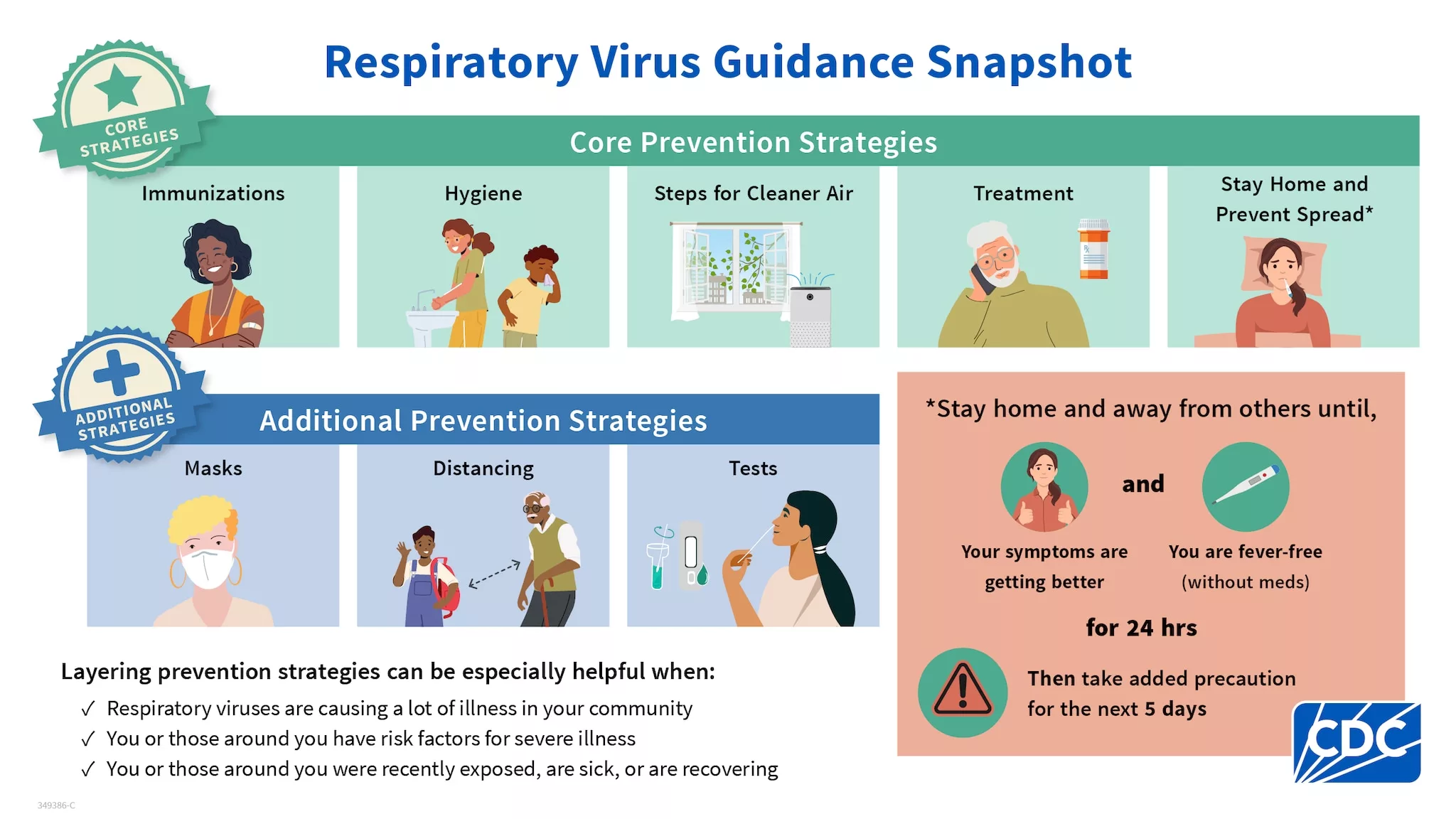
Respiratory Syncytial Virus, or RSV, in most regions of the United States sees a season that starts in the fall and peaks in the winter. According to the Centers for Disease Control (CDC) RSV activity is elevated and continues to increase in the southern, central and eastern United States, particularly in young children. It is spread when an infected person coughs or sneezes, by direct contact with someone who has it, or by touching a contaminated surface.
Washington County Public Health Nurse Shelby Hill shares what RSV is, “It’s a virus that commonly our younger population and our older population are most affected by, but you get the very common runny nose, difficulty breathing at times which is the more difficult part of that, fever, dehydration, even lower appetite, and coughing. So that’s kind of our common signs of RSV, which I know sounds very similar to a lot of other respiratory viruses that can go around, but like I said, kind of our very old and our very young are much more vulnerable to those things.”
She explains why illness can be especially tough for infants, “With our infants, or our littles especially, getting sick can be very detrimental. They’re very little so they’re very little becoming dehydrated. They aren’t coughing well, so they’re not clearing the virus as well as maybe a kind of normal, middle-aged adult would be. And then obviously their immune systems are still developing when they’re that little, so with the vaccine, getting them that boost to get their immune system going and having that ability to be prepared if they’re exposed to something like that to fight the virus is going to help prevent, you know, further more extreme illnesses or hospitalizations.”
Hill adds there is an RSV vaccine available for infants, adults over 60-years old who have another underlying condition, or anyone over 75 years old. According to the CDC, the RSV vaccine is not currently an annual vaccine as protection lasts more than one year. The CDC advises that people can reduce the spread of RSV by practicing good hand hygiene, covering coughs and sneezes, and cleaning frequently touched surfaces, also take steps to for cleaner air, and stay home when you are sick.

